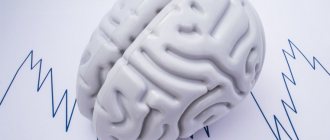The A-medic clinic employs experienced gynecologists who are ready to help you get rid of pathology, regulate hormone levels and choose the appropriate course of therapy for you. It is very important not to forget to carry out a gynecological examination, and in case of complaints, consult a doctor immediately. You can take all the necessary tests, undergo diagnostics and consult with a gynecologist in our medical center. How to identify the first signs of hormonal imbalance, how to prevent the occurrence of disorders, and what treatment is used, you can get answers to all these questions in this article.
What is hormonal background?
Hormones play an important role for a woman; they regulate many processes in the body and are responsible for the successful conception and bearing of children. If their balance is disturbed, your condition may change dramatically, your appearance will deteriorate, irritability, insomnia, etc. will appear. There are several types of hormones that are responsible for the normal functioning of the female body. Estrogens and progesterone control complex processes. The first is responsible for shaping the figure, coordinating the menstrual cycle and stimulating the formation of new bone tissue. Progesterone is called the pregnancy hormone because. It is on its level that a woman’s ability to become pregnant depends.
Hormones are biologically active compounds produced by the endocrine glands; their totality is called the hormonal background. It can change under the influence of various factors. If an imbalance occurs in the human body, pathological processes begin to develop. The failure may begin completely unnoticed, but gradually it will make itself felt with unpleasant symptoms. When these alarming signs appear, you must immediately pay attention to your condition, get tested and begin treatment.
Causes of hormonal imbalance in women.
Hormonal imbalance can be caused by several reasons; unfortunately, it is very difficult to answer unequivocally what affects the level of progesterone and estrogen. A lot depends on the balance of biologically active compounds, for example, a girl’s appearance, her physical condition, the possibility of conceiving a child, the stability of the nervous system and much more. As mentioned earlier, in the female body two hormones are responsible for carrying out important processes - progesterone and estrogen. A deficiency or increase in one of them indicates the appearance of an imbalance and entails very serious consequences. There are several reasons for the occurrence of this pathological condition:
Sudden weight loss or vice versa obesity.
When following a strict diet, lack of vitamins in the diet and fiber deficiency affect the production of hormones.
Genetic predisposition.
If a girl has congenital defects in the hormonal system, then in the future she will most likely have problems with women's health, which are very difficult to treat.
Constant stress and worries.
In the modern world, many women suffer from this pathology, because... They are very often stressed and worried.
Pregnancy.
When a new life is born, serious changes begin to occur in a woman’s body. However, in this case, hormonal imbalance is a natural process that is simply necessary for the successful bearing of a child.
Climax.
When menopause occurs, the functioning of the endocrine system is disrupted, and this affects the production of sex hormones in a woman’s body.
Abortion.
After an artificial termination of pregnancy, a woman’s body finds itself in a difficult situation. Before this, serious changes occurred in it, and the sudden cessation of this physiological process causes hormonal imbalance.
Poor nutrition.
Constant dieting, abuse of fast food, and other junk food can also cause hormonal imbalance. Your body simply will not receive nutrients and vitamins.
Taking hormonal drugs.
Very often, women start taking various hormonal medications without a doctor’s prescription. Incorrect selection of funds can cause a decrease or increase in the level of progesterone and estrogen, which entails serious problems. Therefore, if you are thinking about choosing contraceptive drugs, seek help from a gynecologist, having first passed all the necessary tests.
Hormonal diet menu for women
There are periods of physiological changes in hormone levels in the female body. It is possible to prevent health problems with a properly formulated diet. Minor hormonal fluctuations can also be corrected through nutrition. In all other cases, diet is included in complex treatment.
Estrogen deficiency
Occurs during menopause, as well as with excessive physical exertion, smoking, and inflammatory diseases of the ovaries. In order to saturate the body with plant phytoestrogens, the menu should include the following products:
- legumes – lentils, beans, mung beans;
- soy, soy cheese tofu;
- sour cream, cream (not more than 10% fat content up to 30 g per day);
- coffee – up to 2 cups of grain without sugar;
- grains – oats, barley, red rice;
- drinks – red grape juice, pomegranate;
- flax seeds, sesame.
Excess estrogen
With obesity, stress, and liver disease, the level of female sex hormones may increase. Often this condition occurs 2-3 years before the onset of menopause.
To prevent disruption of the menstrual cycle and restore normal hormonal balance, it is recommended:
- reduce consumption of meat and milk;
- introduce broccoli, cauliflower and Brussels sprouts, and mushrooms into the diet;
- ensure sufficient fiber intake from fresh vegetables and bran;
- use green tea with the addition of mint and raspberry leaves as a drink;
- give up alcohol, especially beer, reduce coffee consumption.
Signs of hormonal imbalance.
Hormonal imbalance very rarely goes away without symptoms, and every woman should know exactly how such changes manifest themselves and how they affect her health. There are several main signs that signal us about an imbalance in hormone levels:
Acne.
Acne is not just acne, it is an inflammatory disease that requires treatment. Typically, teenagers suffer from this problem; hormonal imbalance occurs during puberty. But if acne began to appear at a later age, then this is a serious reason to think about it. An increase in testosterone or dihydrotestosterone levels affects specific receptors that act on the hair follicles and cause excess sebum production. This leads to clogged pores and, as a result, acne. An imbalance of hormones can cause poor nutrition, lack of vitamins, and frequent stressful situations.
Menstrual irregularities.
Normally, the monthly cycle is 21-35 days, and menstruation lasts no more than a week. Deviations from this norm, the appearance of unusual discharge, constant delays, pain during menstruation - all these signs signal a violation. To find out the cause of such changes, a woman needs to be tested for hormone levels.
Amenorrhea.
If a woman experiences constant delays in menstruation that are not associated with pregnancy or lactation, then this phenomenon is called amenorrhea, and it indicates a hormonal imbalance.
Excessive hair growth.
Many women dream of having thick and shiny hair, but what if it begins to actively grow not only on the head, but also in other areas (on the chest, face, back, etc.). In this case, you should undergo a comprehensive diagnosis; perhaps this phenomenon is associated with a violation of the level of the hormone testosterone.
Weight gain.
Rapid weight gain, while maintaining normal eating habits and a normal diet, may indicate changes in hormone levels (for example, thyroid-stimulating hormone).
Deterioration of sleep.
It becomes difficult to fall asleep, you may feel drenched in sweat at night, and after waking up you are left with a feeling of lack of sleep and exhaustion.
Frequent mood swings, depression.
Hormone levels affect not only a woman’s appearance, but also her condition, including her emotional background. Frequent mood swings, irritability, tearfulness for no reason, uncontrollable anxiety - all these signs indicate hormonal imbalances.
Chronic fatigue, migraine.
If you begin to notice a deterioration in your condition, constant fatigue (both physical and psychological) that occurs for no particular reason, headaches, difficulties in performing the simplest tasks, such symptoms may be observed due to hormonal imbalances. High progesterone levels can cause drowsiness.
Decreased sexual desire.
Few people know, but a decrease in libido can be caused by changes in testosterone levels. It is he who is responsible for a woman’s sexual desire. A decrease in his activity leads to problems in his personal life. If you suspect that your condition is related specifically to hormonal imbalance, then you need to seek help from a specialist and not self-medicate.
Of course, for every woman, hormonal imbalance manifests itself completely differently, and only a specialist can determine that her condition has worsened precisely for this reason. At the appointment, the gynecologist will examine you and prescribe the necessary examination, based on the results of which he will make a diagnosis and draw up a treatment plan.
The principles on which the hormonal diet is based
Research conducted by scientists in this area has concluded that a person’s weight directly depends on the level of certain hormones. The consequence of weight gain is a huge amount of insulin, which is produced by the pancreas, estrogen, which is produced by the ovaries. A specially developed nutritional system by nutritionists allows you to reduce the level of these hormones. At the same time, use adrenaline, testosterone and other hormones that help burn excess fat.
What are the reasons for the increase in estrogen and insulin:
- Hormone-based contraceptives.
- Pregnancy and breastfeeding.
- Climax.
- Treatment associated with hormonal imbalance.
Any disorders or natural processes that are associated with these reasons can affect weight changes, food cravings, and the appearance of edema. When hormonal imbalance is caused by serious illnesses, no diet will help. Only medical help will regulate hormonal levels. If the changes are natural and temporary, then this diet will help keep hormone levels normal.
Menu
Excessive amounts of hormones affect where excess fat is deposited and how quickly:
- Estrogen – affects fat in the buttocks. To correct the balance of the hormone you need to consume fiber.
- Insulin - excess fat is deposited at the waist. You can fight it with the help of meat and fish dishes and a huge amount of fresh vegetables.
- The stress hormone, also called cortisol , settles in the stomach. It is combated by healthy fats, which are found in fish oil, whole grain products, and legumes.
- Testosterone – fat grows on your hands. It is necessary to increase the amount of protein products and give up trans fats, which are included in baked goods and confectionery products with butter creams.
- Growth hormone – its imbalance leads to the formation of fat in the ankles and calves. Consume fast carbohydrates to a minimum and focus on protein foods.
The hormonal diet does not involve eating any special foods or special preparation of dishes. The main thing to consider is the variety of food and all foods should be easily digestible. Try to consume minimal quantities of salt, pepper, spices, and everything that can cause swelling and fluid retention.
Each product has its own score, which ranges from 0 to 4. These scores will help you understand in what quantity and what exactly is deposited when you eat this product. If a product has a score of 0, then it does not transform into fat at all, but rather helps burn it.
Diet
Table of points for each product with a hormonal diet:
- «0» - seafood, fish, chicken eggs, chicken fillet, turkey, lean rabbit meat, fresh vegetables, all types of mushrooms, citrus fruits, any greens, dairy products (not higher than 2%), fresh or frozen peas.
- «1» — freshly squeezed juices from vegetables, beans, any berries.
- «2» - chicken meat (except fillet), veal, any nuts, low-fat soft cheeses, black and green olives, cereals, dairy products (not higher than 4%), vegetable oil.
- «3» - boiled potatoes, millet and wheat porridge, hard cheeses, dark chocolate, freshly squeezed fruit juices, boiled corn, low-calorie yogurt without additives or sweeteners, muesli.
- «4» - fatty meats, confectionery, honey, fatty ice cream, semolina, milk chocolate, high-fat dairy products, all types of sauces, store-bought mayonnaise and all other products that contain a lot of calories.
A nutritionist can help you figure out your goals and diet in the best possible way.
Meal times are strictly regulated and must be adhered to.
- Breakfast – 10:00
- Lunch – 12:00
- Lunch – 15:00
- Afternoon snack 18:00
- Dinner 20:00
Losing weight
It is worth considering that if you go to bed and get up early, then everything should be adjusted, guided by this example. The very last meal should not be later than 3 hours before going to bed.
You can eat no more than 300 g at a time. If it is a liquid product, then 250 ml. The break between meals should not be more than 3 hours. You need to drink about 2 liters of water per day.
What are the dangers of hormonal imbalances?
As we have already been able to find out, most of the processes occurring in our body are influenced by hormones. Mood, metabolism, the possibility of conceiving and having a child, sexual development - all this depends on the presence of biologically active compounds in the blood. The natural question then is: what will happen if a hormonal imbalance occurs, what consequences should we expect? By ignoring changes in her condition, a woman risks serious health problems.
First of all, the girl’s appearance changes, acne appears, her hair becomes dull and brittle, she may begin to gain weight or, on the contrary, lose a lot of weight. In the worst case, it is possible to develop infertility, cardiovascular diseases, the formation of mammary tumors, loss of sexual desire and much more. Agree, all these complications significantly reduce the quality of life, or rather make it unbearable. What to do then, how to prevent such a situation from arising? - you ask.
Unfortunately, many women take these symptoms lightly and prefer to ignore them for a long time. In the future, this leads to difficulties in treatment, and sometimes the moment may be missed, and medical care will not be effective. Therefore, if you notice that your menstrual cycle has gone wrong, recently you have begun to constantly feel irritated, tired, or have lost sleep, you should immediately consult a doctor. The gynecologist will prescribe you an appropriate examination, take the necessary tests, and it may turn out that you are simply tired and you just need rest to recover.
Hormonal diet created exclusively for women: how it works and how safe it is
The hormonal diet is unique in that it was created exclusively for women, whose health directly depends on their hormonal levels.
Its main idea is to normalize it, as well as to identify which products from the usual diet cause an allergic reaction and inflammation in women’s bodies. The bonus of all this is weight loss and feeling great. In any case, if you are sure that you have a hormonal imbalance, or simply want to stick to this diet, first consult with an endocrinologist and nutritionist. Spletnik does not encourage anyone to go on this diet, but simply talks about its pros, cons and main principles. What is a hormonal diet
The Hormonal Diet is a nutrition plan based on a book by Natasha Turner, a doctor of naturopathy (a type of alternative medicine that is based on the theory that not all processes in living organisms can be explained scientifically). This diet aims to control hormonal fluctuations that cause weight gain and other health problems.
The diet consists of three stages and lasts six weeks. It is assumed that after its completion, the hormonal levels should return to normal. The diet includes not only nutritional recommendations, but also a physical activity plan and advice on taking nutritional supplements and vitamins.
How it works
The first stage involves a two-week detox that eliminates several food groups. These include gluten, cow's milk, peanuts, sugar, artificial sweeteners, red meat, citrus fruits, simple carbohydrates with a high glycemic index, alcohol and caffeine. You can eat chicken breasts, eggs, freshly caught wild fish, vegetables and most fruits, chia seeds, most nuts, olive oil, whole grains such as buckwheat, brown rice and quinoa.
Supplements such as fish oil, anti-inflammatories, and probiotics should also be taken at this stage. At this stage, the body cleanses itself of excess hormones such as estrogen and cortisol. The first stage of the diet is the most difficult - it can be accompanied by headaches, fatigue and irritability.
At the second stage, you should gradually return some foods to the diet, describing in detail the body's reaction to each of them. For example, if you eat yogurt and it makes you feel bloated, you may need to eliminate it from your diet.
By the end of the fourth week of the diet, you should know which foods you should give up forever. This stage still involves restrictions, as foods that are thought to interfere with hormone production should be avoided. These include fish that are high in mercury, meats and coffee that are not organic, dried fruits such as raisins and dates, peanuts and high fructose corn syrup. Also avoid processed foods, artificial sweeteners, foods with nitrates, and refined grains.
At the third stage, it is worth adding physical activity, including cardiovascular, strength training and yoga, and continuing to follow the diet of the second stage.
A nice bonus of the hormonal diet is that it includes a cheat meal that can be done once a week. On this day, you are allowed to eat those foods that you have excluded, but really love, and also consume more carbohydrates.
Here are some tips to help speed up your metabolism and start your diet.
1. When you eat fruit, always eat it with a piece of cheese or nuts.
2. Eat protein for breakfast. For example, eggs or a protein shake.
3. Drink plenty of water.
4. Start your meal with soups or salads to fill up faster.
5. Protein shakes will help control your appetite and prevent you from overeating at night, especially those made with whey protein, as it reduces insulin levels.
How safe is it
Safe weight loss is considered to be a weight loss of 0.5 to 1 kilogram per week, and this should be a combination of dietary changes and exercise. The hormonal diet promises weight loss of up to 5.5 kilograms in two weeks of the first stage, which is too fast to be considered safe. In addition, weight loss in the first stage occurs only due to changes in nutrition, since training is included only in the third stage.
Most of the initial weight loss is probably due to excess water being lost. This is a consequence of reducing the amount of carbohydrates and avoiding other foods. However, this result is not long-term and the weight can easily return after the end of the first phase or if you return to your normal diet.
pros
However, this diet definitely has its advantages. First, it involves eliminating refined sugar and highly processed foods from your diet, which are fundamentally harmful to all people. Secondly, most foods allowed on the hormonal diet are high in fiber and low in saturated fat.
Foods such as beans and lentils, nuts, seeds, fruits, vegetables, lean protein and unsaturated oils are included in this meal plan. They have been well studied and are known to have beneficial effects on health,
says nutritionist Mary Wirtz.
Third, the hormonal diet plan is based in part on the Mediterranean diet, which is based on eating high-protein foods, vegetables, olive oil and nuts. According to research, the Mediterranean diet is really great for losing weight and preventing excess weight gain.
Minuses
But, of course, like any diet, the hormonal diet has its drawbacks. The first, as we have already noted, is too rapid weight loss in the first two weeks. Secondly, there is no scientifically based evidence that a hormonal diet helps normalize sleep or improve the condition of skin and hair. And finally, it can be extremely burdensome because it requires you to do a lot of cooking, which most people simply cannot afford due to their lifestyle. If you are used to buying ready-made food and snacking on different snacks, you will have to forget about this.
In addition, if you have serious hormonal imbalances, for example, your insulin levels are not normal, a hormonal diet will not help.
The blood renews itself for at least three months. Additionally, eliminating certain foods does not correct hormonal imbalances. It's more likely just a balanced diet and control of carbohydrate intake,
- notes nutritionist Jana Maurer.
This diet has another significant disadvantage for those who love meat and cannot imagine a day without coffee. It is assumed that you can only eat organic meat and coffee, which ordinary people simply cannot afford.
Conclusion
Before you go on a diet that promises to normalize your hormones, make sure that they are the cause of your excess weight or health problems.
Most people do not have hormonal imbalances. They have a lifestyle imbalance. If you suspect that your hormonal levels are imbalanced, you should consult your doctor rather than going on any diet. Instead, try to eat a balanced diet, eat nutrient-rich foods and engage in regular physical activity for best results.
Maurer advises.
Female sex hormones and their functions.
To understand how hormonal imbalance occurs, it is necessary to understand which hormones play the main role in the female body, what they are responsible for and how they affect our condition. Hormonal balance is very important for a person; a violation of the level of one of the hormones affects the health and condition of a woman. Today, there are various drugs that can compensate for the lack of one or another biologically active compound.
All hormones are usually divided into female (estrogens) and male (androgens). Let's consider their main types and purposes:
| Name of the hormone. | Purpose. |
| Estrogen. | For a woman, this is one of the most important hormones. It is responsible for the formation of the figure, for the development of the genital organs, participates in the process of cell renewal, maintains skin elasticity, and prepares our body for bearing and giving birth to a child. |
| Progesterone. | Another very significant hormone for a girl. It is an androgen and is produced in large quantities on the day of ovulation. Progesterone is responsible for a woman’s ability to conceive and successfully bear a child. If its level is low, then most likely the pregnancy will end in miscarriage. |
| Estradiol. | It promotes the establishment of the menstrual cycle, ensures the development of the reproductive system, and plays an important role in the growth of the functional layer of the endometrium. Estradiol is also necessary for pregnant women, it promotes uterine enlargement. |
| Oxytocin. | Sometimes it is also called the love hormone; thanks to oxytocin, a woman becomes more tender, caring, and develops a feeling of attachment to other people. |
| Testosterone. | This hormone is often considered a male hormone, but women also contain it in small quantities. It causes sexual attraction in women to the opposite sex. |
This is only a small part of the hormones that are produced in our body; today there are more than 60 varieties of them.
Nutrition for breast cancer stages 1, 2, 3
The diet for breast cancer does not have to be strict. Moreover, doctors note that a sudden change in diet can lead to negative consequences. However, certain restrictions will have to be observed, because the success of treatment for hormone-dependent oncology depends on nutrition, among other things.
What to eat during and after chemotherapy
Nutrition during chemotherapy should help a woman’s body cope with the side effects of the procedures. Patients are often concerned about intestinal problems - constipation or diarrhea. In both cases, you need to drink enough liquid. For constipation, water and foods rich in fiber - grain bread, fruits, bran - promote normal peristalsis. If the patient is bothered by diarrhea, drinking frequently helps avoid dehydration.
If chemotherapy drugs make you feel nauseous, eat small meals several times a day. Berries and fruits with a sour taste also dull nausea. Many patients note that they feel more comfortable eating cool foods during chemotherapy.
Nutrition after chemotherapy is aimed at restoring the body. Doctors usually don’t single out any prohibited foods, so eat your favorite foods little by little, noting your body’s reaction to them. A positive attitude is important for recovery, and delicious meals will help with this.
The diet for breast cancer can be Mediterranean. It consists mainly of cereals, pasta, whole grain bread, as well as vegetables and fruits. Give preference to fish and seafood rather than meat. Research shows that breast cancer is quite rare in Mediterranean countries. Cook in vegetable oil. Eat dairy products within reasonable limits.
Nutrition during hormone therapy for cancer is also not limited to clear recommendations. The oncologist will always tell you what not to eat during treatment, especially when the patient has contraindications or if the medications used cannot be used simultaneously with certain foods.
How to eat with breast cancer: basic recommendations
By gradually changing your daily menu, you can slow down the development of cancer or reduce the risk of relapse of the disease. We tell you how to adjust your diet:
- Stop frying food: when cooked, foods containing carbohydrates release acrylamide, a carcinogen. To preserve the beneficial properties of food, you can cook in a double boiler.
- Avoid canned goods and foods with long expiration dates. If it’s difficult, remove them from your diet gradually. Someday you will be surprised that it took you so long to give up this food.
- Drink green tea, which is known for its antioxidant properties. Beetroot works in a similar way, so it will also be beneficial for cancer patients.
- Try to replace sweets with honey, dark chocolate, marshmallows and dried apricots.
- Monitor the nutritional value of your food. Nutrition for breast cancer should include fats, a third of which are of plant origin, and protein, which is found in beef, low-fat cottage cheese, and sea fish. Gradual weight loss while being overweight will indicate that you are going in the right direction.
- Include broccoli in your diet. Cabbage from the cruciferous family is most beneficial for humans and has antitumor activity.
- It is almost impossible to achieve the daily dose of nutrients from regular food. It’s hard to imagine that you can eat, for example, 4 kg of cabbage per day. To compensate for the deficiency of substances useful for oncology, take special products that include indole-3-carbinol (cruciferous plant extract) and epigallocatechin-3-gallate (green tea extract). They are contained in a standardized quantity in the biologically active food supplement Promisan. Today, this is perhaps the only food supplement with clinically proven effectiveness and recommended for patients with oncology to reduce the risk of relapse of breast, ovarian, and endometrial cancer. More than 6,000 publications in authoritative international sources are devoted to the oncoprotective effect of indole-3-carbinol and epigallocatechin-3-gallate. Find out more at promisan.ru.
Nutrition for breast cancer can be tasty and varied. Remember that a strict diet will not bring benefits, and do not forget to check with your doctor about what you can eat based on your condition. Change your lifestyle, starting with small steps. Do everything with pleasure, let every day of your new life give rise to a new cell!
List of sources:
- Muranova O. Yu. Risk factors for breast cancer // Siberian Journal of Oncology. 2007. pp. 76-77.
- Karpova T.V., Lytova S.F. Culinary food carcinogens // Science, technology and education. 2015.
- Gorbunova N.V., Evteev A.V., Bannikova A.V., Reshetnik E.I. Prospects for using products of complex processing of crop production as sources of antioxidants // Far Eastern Agrarian Bulletin. 2021. No. 2(42). pp. 120-126.
- Chochieva A. R., Bolieva L. Z. Study of the chemopreventive activity of broccoli powder on the occurrence of mammary tumors induced in rats by MNM // Bulletin of new medical technologies. 2010. No. 3. P. 172-173.
PHOTOS: unsplash.com
Share
Diagnosis of hormonal imbalance.
If you notice alarming symptoms, you should not delay diagnosis; in this case, you should contact one of these specialists: a gynecologist, an endocrinologist or a mammologist. The doctor will ask you to undergo an examination and prescribe the necessary tests (a test to determine hormone levels, a general and biochemical blood test). Also, a woman must undergo an ultrasound examination of her internal organs. Having received the results, the doctor will identify which hormone is being produced incorrectly and prescribe appropriate therapy to normalize its level.
Treatment of hormonal imbalance.
First of all, you should understand that only a doctor can help you restore your hormonal balance; you should not self-medicate. The specialist will determine the cause of the change in your condition and prescribe the appropriate treatment. Usually such problems are solved comprehensively, the woman is prescribed medications, various vitamin complexes, diet, etc. In some cases, surgery is necessary. Also, to normalize hormone levels, the doctor may recommend oral contraceptives; they are selected individually for each patient.
Cost of treatment.
To prevent hormonal imbalance, a woman should undergo regular gynecological examinations. The key to health is constant monitoring and monitoring of your condition. The cost of treatment is calculated individually, after receiving the diagnostic results. At the A-medic clinic, patients can undergo all necessary types of tests and receive advice from an experienced specialist. You can make an appointment with a gynecologist by calling us at phone number: +7 (499) 350-44-47 or fill out an application online on our website.










